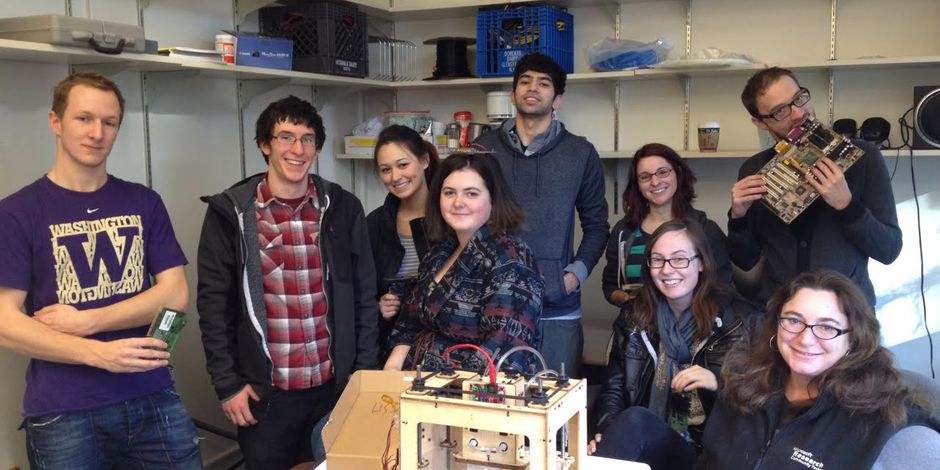Hackademia

For the past couple years I’ve been running a project at the UW a little bit under the radar. It’s not Official Research, or even Actual Teaching. It’s more of an exercise in inspiration. I’m giving undergrad and graduate students–regardless of their major–an opportunity to be innovative and build amazing stuff. I don’t care about their backgrounds, official expertise, or whether they’re a STEM major. Instead, I’m creating the conditions for people to get hands-on experience with technical tinkering, see themselves as builders of things and not just consumers of things–to see themselves as a technical person regardless of their career. I started doing this because I was convinced non-experts can have game-changing insights into difficult problems–precisely because they aren’t familiar with the constraints of the problem space. I’ve watched students make amazing contributions to global health, and I’ve been inspired and humbled by their fearlessness and imagination. So I started Hackademia to create a cohort of functional engineers (not accredited ones!) that have the vocabulary, understanding of basic concepts, and self-confidence to participate fully in creating innovative technologies.
I’ve been a professor for many years. I’ve done a lot of official academic work (see bethkolko.com). I’ve also spent 10 years researching technology adoption in Central Asia, I helped start the field of Info and Comm Tech for International Development, I’ve led a team that built a usable, low-cost ultrasound system designed for midwives in Uganda, I’ve gone to Kenya and Kyrgyzstan to study SMS and post-election violence, and I’ve taken a PhD in English and turned it into a full professorship in Engineering. But Hackademia is definitely the most awesome thing I’ve tried to do, because when (not if!) we’re successful, and we’ve spread like a virus through the land, we’ll have convinced people that traditional conceptions of expertise aren’t what’s going to change the world. We’ll have created a scalable model for creating functional engineers who can bring fresh perspectives to solving problems and help make the world a better place.
After 2 years & the help of amazing students, we now understand what it takes to scaffold people who come through the door, how to create early successes and spur people on to new ways of thinking and tinkering. It’s time to be vocal, recruit more vigorously, and build awesome things that will spread the word, But we need some help to do that.